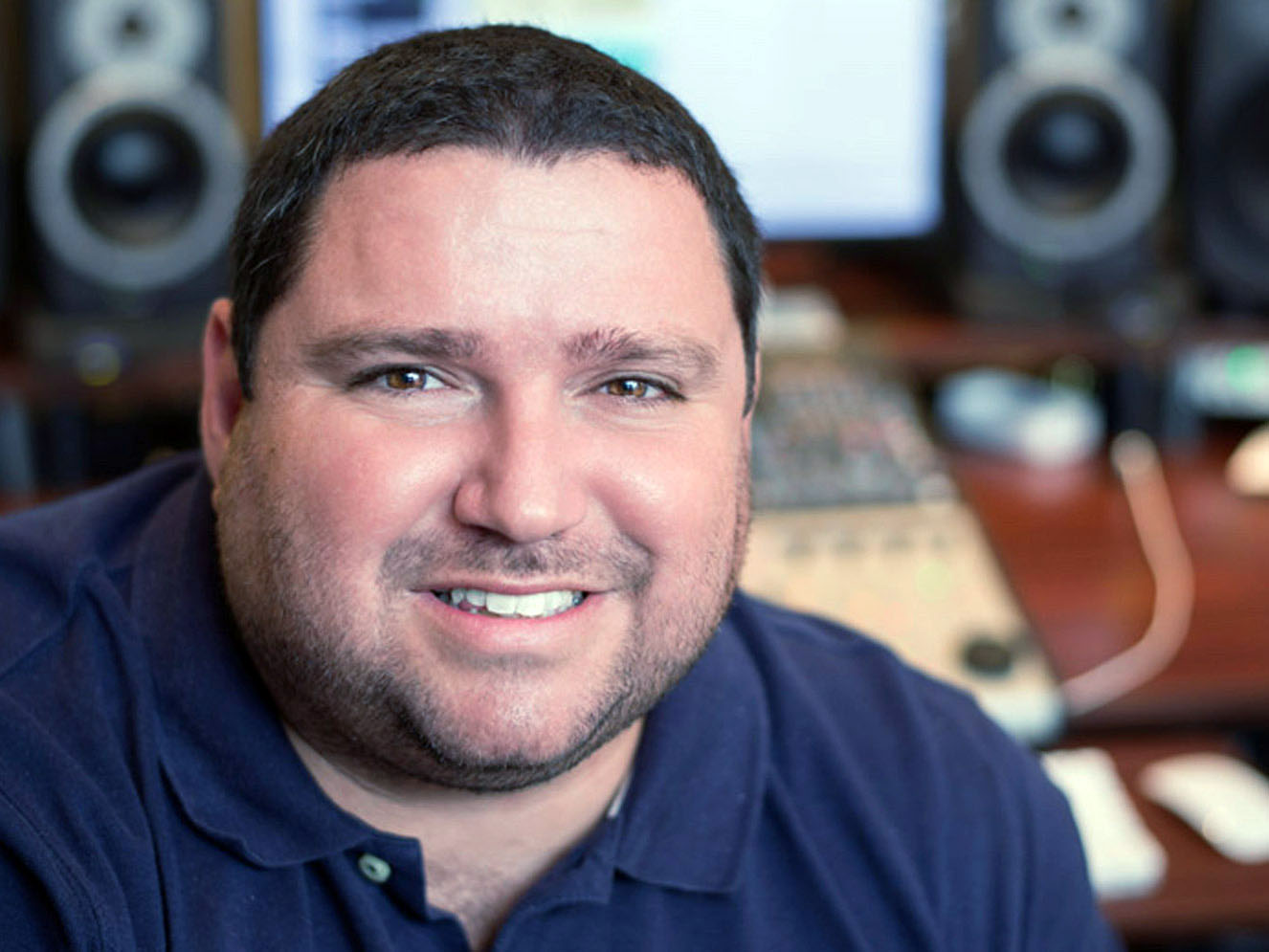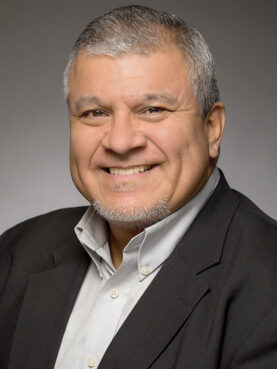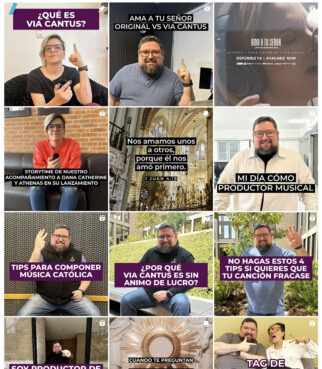
(RNS) — Take a look at the Best Christian Album (Spanish Language) category at the Latin Grammys, and you might think the vast majority of Latino Christians in Latin America and the U.S. are evangelical Protestants. Most of the winners have been a rotating collection of evangelical pastors and praise musicians.
But that doesn’t reflect the numbers on the ground. While Catholicism has seen a steep decline among Latinos in the United States and across Latin America, in the two decades since the Latin Grammys added the category, Latino Catholics still outnumber their evangelical counterparts in the U.S. and Latin America by more than 2 to 1.
Evangelical Latino performers benefit from the more established evangelical Christian music industry.
“Christian music has an industry that we don’t have,” said Juan Delgado, the most recent Catholic winner of the award, using “Christian” as shorthand for non-Catholic Christians. Nonetheless, he said, research shows that many Christian music listeners are Catholic.
Now, Delgado and another veteran Latino Catholic musician have partnered up to create their own label with the aim of bringing new professionalism to Spanish-language contemporary Catholic music. “Our goal is to advance Catholic music as an industry,” Delgado said of Via Cantus, the new nonprofit label.

Juan Delgado. (Photo courtesy Via Cantus)
Delgado, a producer as well as a musician, won a Latin Grammy for Best Contemporary Tropical Album in 2007 for his engineering on Oscar D’León’s “Fuzionado” and took home a Spanish-language Christian Latin Grammy in 2019 for his own album, “Todo Pasa.” His co-founder, Pedro Rubalcava, a composer and music minister originally from California’s border area, was nominated for Best Mexican-American Performance for his 1989 album “Amanecer.”
Delgado and Rubalcava, who is now director of Oregon Catholic Press’ label group, had dreamed of a Spanish-language Catholic label for decades, but, inspired by Pope Francis’ call to “go out,” they officially launched Via Cantus in February 2023.
Music has been a key part of Delgado’s faith journey, which began with a severe bout of dengue fever as a teenager in Venezuela. His mother, seeking to ask God to heal him, reached out to a charismatic Catholic community. After he recovered, Delgado said he went early to pick his mother up from Mass, and as he approached the sanctuary, Delgado could see the priest lifting the Host to consecrate it as he heard 800 people sing, “Vive Jesús,” or “Jesus Lives.”
“I was in the presence of God. He let me see him. He let me feel him. And I fell to my knees, and I cried and cried and cried,” Delgado said.
“Music is the language God used to talk to me,” he said. As he moved to becoming a practicing Catholic, he found his path in music ministry.

Pedro Rubalcava. (Photo by Liz Wade)
Oregon Catholic Press, which just celebrated its 100th anniversary, has traditionally focused on creating resources for liturgical music, including hymnals and recordings. With Via Cantus, Rubalcava said that OCP is focusing on non-liturgical music as a “tool for evangelization.”
Delgado, based in Miami, and Rubalcava, based near Portland, Oregon, said Via Cantus, as a division of OCP, will be the first Spanish-language Catholic label with the level of backing that OCP can provide, including a team of music professionals spread throughout Latin America and the U.S.
Via Cantus took several years to assemble a team of professionals who also had “the heart and the mission,” all while battling ignorance about the music business from Catholic artists and leaders, Delgado said.
Even lacking the infrastructure of the evangelical Christian industry, Catholic artists have still gained success independently, often without knowledge about copyright or other music business basics, Delgado and Rubalcava said.
The Catholic church “is slow to react” and “much more careful,” said Delgado. “We’re not trendy,” he said.
But more recently, the church has begun to see the importance of supporting Catholic artists and influencers, seeing that liturgical music is not the only Catholic music. In February, Delgado gave a presentation about music business to the Latin American conference of Catholic bishops.
So far, Via Cantus has worked with well-known Spanish-language artists Athenas and Verónica Sanfilippo, but is also developing new artists, such as Joaquín Chávez, who was successful in a nationwide Catholic music competition in Argentina.
Delgado and Rubalcava said they want to equip all Catholic artists to succeed. The label’s Instagram account, which has seen explosive growth to more than 35,000 from about 15,000 followers in just four months, shares everything from marketing and production tips for Catholic artists to insider insights like a video of a day in Delgado’s life as a producer.

The Via Cantus website. (Screen grab)
“There’s a lot of people that want to do excellent work. They just don’t know how or they don’t have the means to do it,” Delgado said.
The label has seen other successes since its launch, including breakout moments for their collaboration with Sanfilippo on her single “Por La Fe.”
The song received a nomination for Best Feminine Vocal Album or Track at the 2023 ARPA awards, which recognize Spanish-language contemporary Christian music voted on by the members of the National Academy of Music and Christian Arts. “Por La Fe” was also featured in a video on the Grammys website. Sanfilippo and Athenas performed in a showcase for the Gospel Music Association, the organization behind the Dove awards.
In September, Via Cantus hosted a concert in Argentina for more than 4,000 people in the Archdiocese of Rosario. Calling the event Salve, they recorded videos of their artists, including Celines, Pablo Martinez, Sanfilippo and Chávez, for an eventual album.
At the concert, Archbishop Eduardo Eliseo Martín led a Eucharistic procession and adoration through the crowd.

Via Cantus is active on Instagram. (Screen grab)
The church needs more such informal spaces, said Delgado, who hopes to make events like Salve part of the label’s long-term plan.
“We need spaces where people can just come in shorts and be part of something and hear music,” Delgado said. Those spaces could also be places to “hear the word of God and hear somebody preach something that would invite them eventually to come and sign in to Mass.”
With Via Cantus, Delgado said, “We can go outside of the church and bring something good, bring God, bring good news to people that are suffering, even if, especially if they’re not practicing Catholic.”
